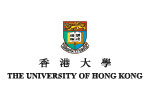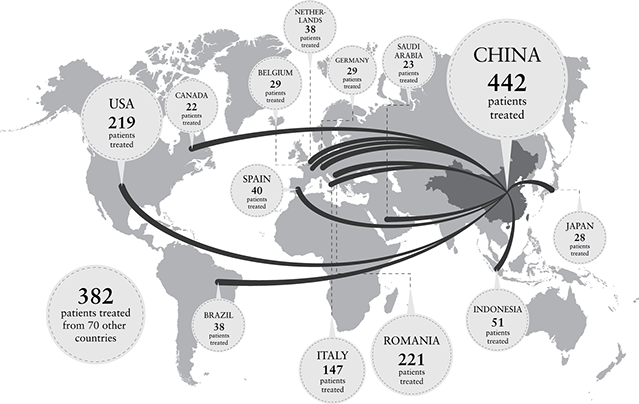
Journey Of Hope
Increasing numbers of people suffering from terminal illnesses are heading to China in the hope of a cure. An award-winning new book examines how internet global communication, coupled with market-driven healthcare reforms in China, has given rise to these controversial medical pilgrimages.
Last year, a Chinese scientist hit world headlines when he claimed to have made the world’s first gene-edited babies by disabling the genetic pathway HIV uses to infect cells. That Dr He Jiankui made his initial claim via a YouTube video, is viewed as both fitting and ironic by Dr Priscilla Song, Assistant Professor in the Centre for the Humanities and Medicine. Her book, Biomedical Odysseys: Fetal Cell Experiments from Cyberspace to China, focusses on how online communications have stoked the growth of experimental medical therapies.
Bringing together a decade of ethnographic research in hospital wards, laboratories and online patient discussion forums, and funded by the US National Science Foundation, Dr Song’s book won the American Anthropological Association’s Society for East Asian Anthropology’s 2018 Francis LK Hsu Book Prize for the book judged to have made the most significant contribution to the field.
“Media headlines tend to assume that people desperate for a cure are heading to China only to be met by snake-oil salesmen,” said Dr Song. “I wanted to challenge the easy story – that desperate patients are easily duped. Many of the patients and families I worked with were very savvy, they knew the data and often challenged their skeptical clinicians back home from a position of knowledge.
“Diagnosed with terminal illness, these patients were told by their local general practitioner to go home and prepare for the worst. But as an ALS [motor neuron disease] patient from Texas asked: ’What do you want me to do? Buy a coffin?’. Instead, he went online to search for options. And I’m not talking ‘Dr Internet’.Instead, this is careful and rigorous research.”
Such patients meet virtually in internet chat rooms, where they evaluate current research, share data about their own symptoms and compare possible treatments. Dr Song gives as an example a patient forum called CareCure Community for victims of spinal cord injuries. She is donating all royalties from sales of the book to this forum.
Dr Song was particularly interested in what motivates a person to make the trip to China. Since many have never left their own state, let alone their country, China is a major reach for them. One important factor is the mismatch between patient and researcher timelines: a patient with a serious fatal illness may not have long to live, while biomedical research takes many years of testing and trials to go from laboratory bench to hospital bedside. Patients also challenged the ethics of placebo-controlled clinical trials, asking online: “Is it ethical to drill holes in their heads and inject them with saline water for the sake of science, if people in that control group are seriously ill?”
“In chat rooms, these people discuss their willingness to become (in their own words!) laboratory rats,” said Dr Song, drawing a parallel with the early years of the HIV epidemic when people wanted access to experimental drugs and patient activism changed the way medical research was done. “The difference today is that, enabled by the internet, this is happening on a global scale. However, that also means it is complicated by the laws and regulations in different countries. I wanted to know why CareCure users from the US and Europe decided to entrust their lives to Chinese neurosurgeons?”
This question led Dr Song to investigate the transformation of the medical profession in Mainland China – from a state-run system focussed on primary care to an unevenly privatised sector rewarding technological innovation. Put simply, the equation is: the government is trying to make healthcare accessible to all, so keeps the price of essential medical services unrealistically low. This in turn has encouraged medical professionals to develop non-essential healthcare – using the latest technology and experimental medical procedures – in order to survive in the new socialist market economy.
“Ironically, this industry is an unintended consequence of government efforts to safeguard basic healthcare,” she said. “As a result, China has become a world leader in what is often termed concierge medicine. This ‘healthcare with Chinese characteristics’ has led to worrisome inequalities.”
Chinese neurosurgeons performing fetal cell transplantation.
(Courtesy of Doug Kanter)
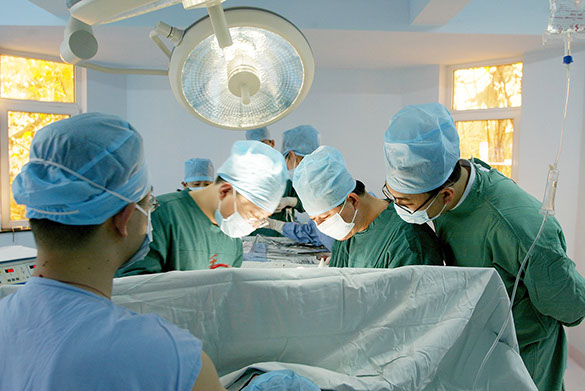
Geographical distribution of fetal cell therapy recipients by country of origin.
(Courtesy of Oikeat Lam)
Rise of ‘technonationalism’
The situation has been exacerbated by what Dr Song terms ‘technonationalism’. Embracing “state efforts to promote scientific and technological modernisation to increase China’s standing in the world”, clinicians want to make breakthroughs, to be pioneers in medical science. “The Chinese neurosurgeons I studied want to operate at the cutting edge of regenerative medicine,” said Dr Song. “As a result, stem cell and fetal clinics have proliferated across the country.”
These new biomedical technologies are opening up new horizons of hope which drive international journeys by overseas patients. The press has termed it medical tourism, but Dr Song has challenged this term as too flippant. “I think ‘medical pilgrimages’ is more accurate. The people I studied are making arduous journeys to seek a transformation – a cure for what is currently incurable – to change their life prospects and to revolutionise medical science.”
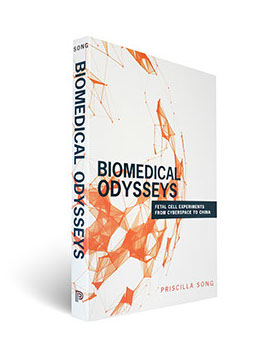
Biomedical Odysseys: Fetal Cell Experiments from Cyberspace to China
Author: Priscilla Song
Publisher: Princeton University Press
The big questions remain: do these pilgrims find what they are seeking? Dr Song noted: “This experimental therapy ultimately was no magic bullet. But even though paralysed patients are not miraculously walking again, this doesn’t mean we should dismiss what is happening in China.
“Patients are trying to challenge medical dogma and mobilise clinicians to do something. The message they want to convey is that we are not dupes, we are participating in this experimentation willingly, and even if it does not help me it may help further the work.”
As Dr Song shows in her book: “Their medical odysseys to China offer a powerful corrective to over-simplified narratives of exploitation and quackery that characterise media coverage of experimental fetal cell therapies. Their experiences show us what it means to live in the wake of neurological catastrophes and the ways we can continue to care for those whom afflictions have been deemed incurable.”
Back
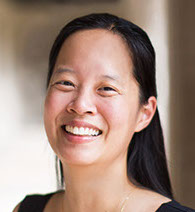
![]() The people I studied are making arduous journeys to seek a transformation – a cure for what is currently incurable – to change their life prospects and to revolutionise medical science.
The people I studied are making arduous journeys to seek a transformation – a cure for what is currently incurable – to change their life prospects and to revolutionise medical science. ![]()
Dr Priscilla Song
Home
May 2019
Volume 20
No. 2

Books
